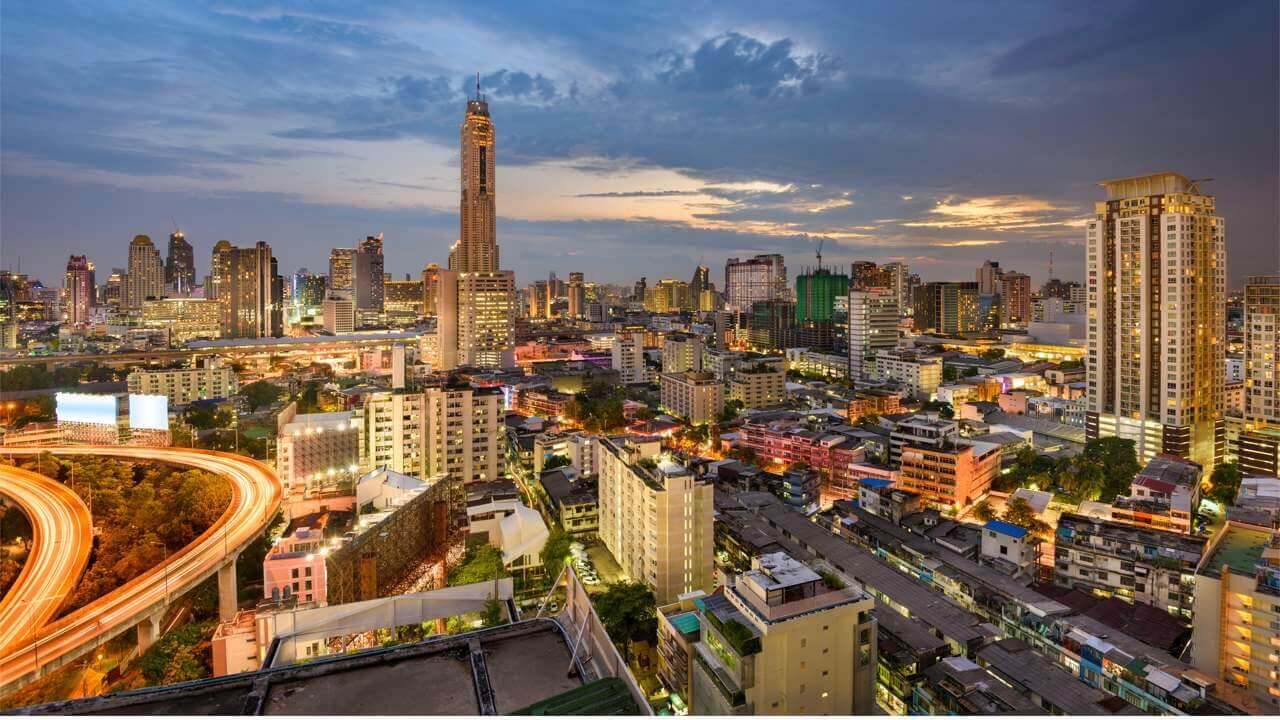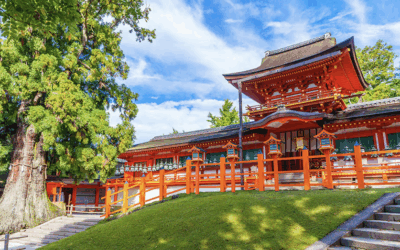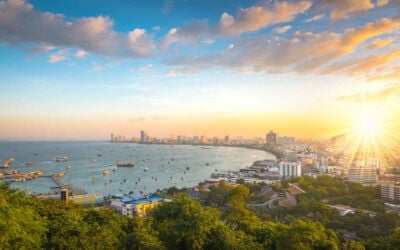Last updated March 27th, 2025.
Thailand is often the first stop for tourists in Asia. Its capital of Bangkok is the world’s most visited country with more than 21 million arrivals last year.
Naturally, many people get their first glimpse of emerging Asia in the “Land of Smiles” and then wonder how to invest in Thailand.
We don’t think Thailand is Asia’s best place to invest. Despite that, some people enjoy the country’s lifestyle. They want assets in the country for both personal and financial reasons.
Perhaps they’re looking for a second home more than a return-optimized investment.
There’s something to be said for investing and/or buying property in a country which is enjoyable and familiar to you. Even if it’s not the best place to make returns.
Most foreigners invest in Thailand though one of two ways: either buying real estate or stocks, although there are less traditional assets too.
None of these methods require actually living in Thailand as a resident – you’re able to own stocks or a condo unit on just a tourist visa.
With that said, there are several important things to keep in mind if you’re investing in Thailand as a foreigner.
Buying a Condo in Thailand
Condos in Thailand can be legally owned by foreigners with the title in their own name. But there are a few restrictions and rules which must be followed.
First off, no more than 49% of the floor space in a single condo project can be owned by foreigners. This is rarely an issue in practice. Practically every condo building is well below this foreign ownership threshold.
Second, and most importantly, the money used to buy the property must be foreign currency transferred into Thailand from abroad. The exchange of foreign currency into Thai baht must be done in Thailand, by a Thai bank.
Make sure to check the wire transfer form very carefully when sending money into Thailand. If your sending bank does the currency exchange itself (which it often does by default), the result will be an expensive delay.
We have a detailed guide about buying property in Thailand can be found here. It’s fully comprehensive and covers everything from tax implications to location analysis – from Bangkok to Phuket.
Trading Stocks in Thailand
To buy stocks in Thailand, you obviously need a brokerage account. All of the country’s large banks offer savings accounts, brokerage accounts, and usually even a selection of mutual funds.
Bangkok Bank, Siam Commercial Bank, Krungthai Bank, and Kasikorn Bank are Thailand’s big four.
It’s easy for almost anyone to open a bank account in Thailand, provided you visit the right branch. But it’s difficult (if not impossible) to open a brokerage account if you’re on a tourist visa.
This might not include you. If you’re living in Thailand on a long-term visa, just go over to the head office of any large bank and they’ll set you up. It could be slightly more difficult if you’re an American.
Otherwise, your main option is to open a brokerage account outside Thailand which can trade on the Thai stock exchange.
Most large banks in Singapore can do this, as well as BOOM Securities in Hong Kong. The latter is able to open an account remotely which will let you trade stocks in Thailand.
Is Investing in Thailand a Good Idea?
There are several good reasons to invest in Thailand. Its currency, the Thai Baht, is one of the best in Southeast Asia. It’s far superior to the Vietnamese Dong and Indonesian Rupiah, for example.
Over the past few years, the baht has been more stable than even the Japanese Yen and Singapore Dollar.
But GDP growth is weak. Many countries in Western Europe are even growing faster than Thailand right now. It’s difficult to call any country an “emerging market” when it’s growing by only 3% per year.
Several neighborhoods and cities have dangerous levels of supply too. Pattaya’s real estate market is now imploding because of oversupply and weak demand. Likewise, one bedroom condo units have flooded the market in Bangkok’s suburbs.
Don’t get us wrong: there are still some deals to find in the Thai real estate market as well as the local stock exchange.
But you’re better off buying property in faster growing countries such as Cambodia or the Philippines instead of Thailand if your primary goals are investment and returns.
FAQs: How to Invest in Thailand
Can Foreigners Buy Property in Thailand?
Yes, foreigners can legally own condominiums in Thailand, provided that no more than 49% of the total floor space in a condo building is foreign-owned. However, foreigners cannot directly own land in Thailand. Instead, they often use long-term leases or set up a Thai company to hold land on their behalf.
Additionally, the funds used to purchase property must be transferred from abroad in foreign currency, and the exchange must be done within Thailand by a Thai bank.
How Can Foreigners Invest in Thai Stocks?
To invest in Thai stocks, foreigners need to open a brokerage account with a Thai financial institution. While opening a bank account in Thailand is relatively easy, setting up a brokerage account can be more challenging, especially for those on a tourist visa.
Many large Thai banks, such as Bangkok Bank, Siam Commercial Bank, Krungthai Bank, and Kasikorn Bank, offer brokerage services. Alternatively, investors can use offshore brokerage accounts in countries like Singapore or Hong Kong that allow trading on the Thai stock exchange.
Is Thailand a Good Place to Invest?
Thailand has a stable currency (Thai Baht) and a well-developed financial system, but its GDP growth has been relatively weak compared to other Southeast Asian nations. Some areas, like Pattaya and certain Bangkok suburbs, have an oversupply of condos, leading to weak demand and declining property values.
While there are still investment opportunities, investors looking for higher returns may find better prospects in faster-growing markets like Cambodia or the Philippines.
What Are the Risks of Investing in Thailand?
One of the main risks is slow economic growth, which makes Thailand less attractive compared to other emerging markets. Additionally, certain real estate markets in Thailand are experiencing oversupply issues, leading to declining property values.
Foreign investors should also be aware of legal restrictions on land ownership and the potential bureaucratic challenges involved in transferring funds and setting up investment accounts. While Thailand remains a popular destination for lifestyle reasons, it may not offer the best investment returns compared to other Asian markets.







